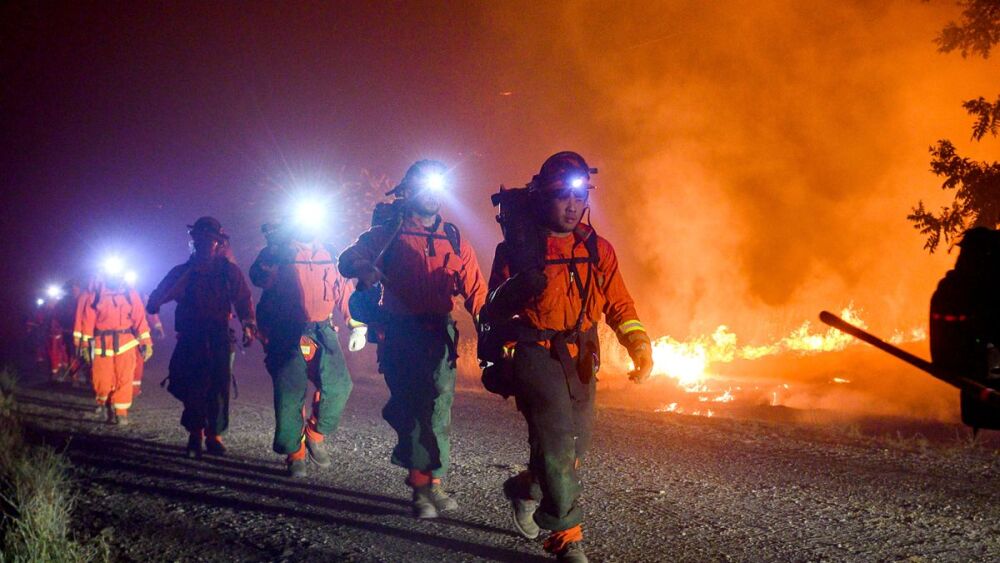By Hannah Wiley
The Sacramento Bee
SACRAMENTO, Calif. — Against a backdrop of a scorched California town, Gov. Gavin Newsom on Friday signed a law to let prison inmates who volunteer as firefighters more easily gain employment as first responders after completing their sentences.
The new law, Assembly Bill 2147, will let certain former inmates who’ve worked on hand crews fighting wildfires through the state’s Conservation Camp program apply to have their criminal records cleared. That would give them an easier path to getting hired as firefighters at government agencies.
“This bill would give those prisoners hope of actually getting a job in the profession that they’ve been trained,” Newsom said during a press conference while touring damage caused by the North Complex Fire. “It will give these future firefighters and emergency personnel a chance by giving them an opportunity to expunge their records, giving them an chance to get their certificate, giving them a chance to potentially get a career ladder coming out of prison.”
California inmates have for decades been recruited to fight wildfires. The inmates are paid between $2 and $5 a day, plus $1 per hour when they’re on a fire, but can earn time off their sentences for their work.
The coronavirus outbreak left the program shorthanded this summer when the pandemic took hold in California prisons, prompting restrictions on movement. That amplified longstanding criticism of the program, whose opponents liken it to a form of slave labor because inmates earn just dollars a day for their labor.
Supporters of the new law have said it will provide an avenue for inmates who’ve learned job skills while on fire frontlines to continue this life-saving work once their time is up.
Advocates have also argued that if inmate firefighters have risked their lives while in prison, they should be allowed the same chance to serve their communities after incarceration.
“If we really want to bring about change and lower our recidivism rates, we have to ensure that those that have served their sentences have an opportunity for meaningful employment,” bill author and Democratic Assemblywoman Eloise Reyes, D-San Bernardino, wrote on Twitter after the bill passed. “Those that have served on the fire lines deserve a second chance.”
According to the California Department of Corrections and Rehabilitation, around 3,100 inmates currently work at 43 fire camps in 27 counties, with about 2,200 considered “fire line-qualified.” The program draws on volunteers and is restricted to inmates with “minimum custody status,” or only those who have good behavior records. Sexual and arson offenses exclude an inmate from qualifying for the program, as does a history of fleeing or violence.
———
©2020 The Sacramento Bee (Sacramento, Calif.)












